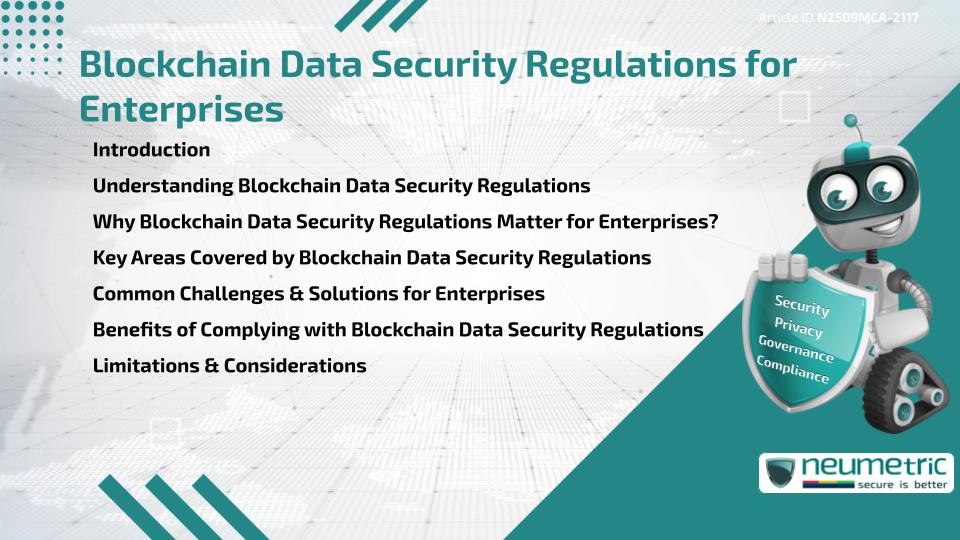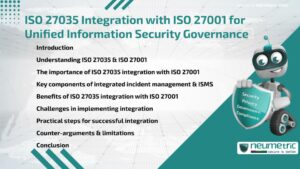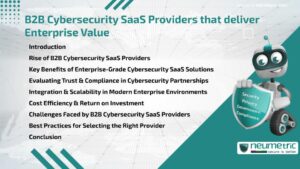Table of Contents
ToggleIntroduction
The Blockchain Data Security Regulations are becoming a Central focus for Enterprises as Blockchain adoption expands across Industries. While Blockchain Technology provides Transparency & Decentralisation, it also introduces complex Compliance & Security challenges. This Article explores the meaning, importance, key areas & benefits of Blockchain Data Security Regulations for Enterprises.
Understanding Blockchain Data Security Regulations
Blockchain Data Security Regulations consist of Legal & Compliance Frameworks that govern how Enterprises implement & manage Blockchain Solutions. These rules aim to ensure Data Privacy, Integrity & Accountability while supporting innovation.
They address areas such as Data Ownership, Immutability of Records, Consent Management & Regulatory Oversight. For background, see OECD digital Security principles.
Why Blockchain Data Security Regulations Matter for Enterprises?
Enterprises using Blockchain for Supply Chain, Financial Services or Healthcare must comply with existing Data Protection laws such as GDPR, HIPAA or Sector-specific guidelines. The Blockchain Data Security Regulations are important because they:
- Protect Personal & Sensitive Data on Decentralised ledgers.
- Clarify Legal Accountability for participants in Distributed Networks.
- Support Cross-border Operations while aligning with Compliance Standards.
- Build trust with Customers, Partners & Regulators.
For broader insight, see the European Commission Blockchain strategy.
Key Areas Covered by Blockchain Data Security Regulations
- Data Privacy & Consent – Rules ensuring Personal Data stored on Blockchain Complies with Privacy Laws.
- Encryption & Security – Standards for Cryptographic Safeguards & Secure Key Management.
- Immutability vs. Right to Erasure – Balancing Blockchain’s permanence with Legal rights under GDPR.
- Governance Models – Defining responsibilities among participants in Public & Private Blockchains.
- Cross-Border Data Transfers – Ensuring Compliance with transfer rules in global Blockchain Networks.
- Incident Reporting – Obligations to disclose Breaches or Vulnerabilities.
Practical guidelines are available from NIST Blockchain research.
Common Challenges & Solutions for Enterprises
- Regulatory Uncertainty – Track evolving rules across multiple Jurisdictions.
- Data Permanence – Use Off-chain storage for Sensitive Personal Data while keeping hashes On-chain.
- Interoperability Issues – Adopt Frameworks that enable Compliance across different Blockchains.
- Resource Gaps – Invest in Compliance Expertise & Automated Monitoring Solutions.
The ISACA Blockchain resources provide useful insights into managing Compliance challenges.
Benefits of Complying with Blockchain Data Security Regulations
- Regulatory Assurance – Reduces Legal Risks & Penalties.
- Stronger Security Posture – Enhances resilience against Data Breaches.
- Operational Trust – Builds confidence among Customers & Partners.
- Business Advantage – Supports secure Innovation & Competitive differentiation.
Limitations & Considerations
Blockchain Data Security Regulations are still evolving & differ across Jurisdictions. Enterprises must adopt flexible Compliance strategies & align Blockchain projects with broader Governance Frameworks to mitigate Legal uncertainty.
Takeaways
- Blockchain Data Security Regulations govern Privacy, Encryption, Governance & Data Transfers.
- Compliance builds trust, reduces Risks & Strengthens Enterprise Security.
- Challenges include Regulatory uncertainty & balancing Immutability with Privacy Rights.
FAQ
What are Blockchain Data Security Regulations?
They are Legal & Compliance Frameworks that govern Blockchain implementations for Enterprises.
Why are they important?
They ensure Privacy, Accountability & Trust in Blockchain Networks.
Do these Regulations conflict with Blockchain’s immutability?
Yes, especially with rights like erasure under GDPR. Hybrid Storage Models often address this.
Who must comply with these Regulations?
Any enterprise adopting Blockchain Solutions that process Sensitive or Personal Data.
Are global Regulations consistent?
No, they vary widely, requiring Organisations to adapt to multiple Jurisdictions.
References
- OECD – Digital Security Principles
- European Commission – Blockchain Strategy
- NIST – Blockchain Research
- ISACA – Blockchain Resources
- IT Governance – Blockchain & Security
Need help for Security, Privacy, Governance & VAPT?
Neumetric provides organisations the necessary help to achieve their CyberSecurity, Compliance, Governance, Privacy, Certifications & Pentesting needs.
Organisations & Businesses, specifically those which provide SaaS & AI Solutions in the Fintech, BFSI & other regulated sectors, usually need a CyberSecurity Partner for meeting & maintaining the ongoing Security & Privacy needs & requirements of their Enterprise Clients & Privacy conscious Customers.
SOC 2, ISO 27001, ISO 42001, NIST, HIPAA, HECVAT, EU GDPR are some of the Frameworks that are served by Fusion – a SaaS, multimodular, multitenant, centralised, automated, CyberSecurity & Compliance Management system.
Neumetric also provides Expert Services for technical Security which covers VAPT for Web Applications, APIs, iOS & Android Mobile Apps, Security Testing for AWS & other Cloud Environments & Cloud Infrastructure & other similar scopes.
Reach out to us by Email or filling out the Contact Form…





